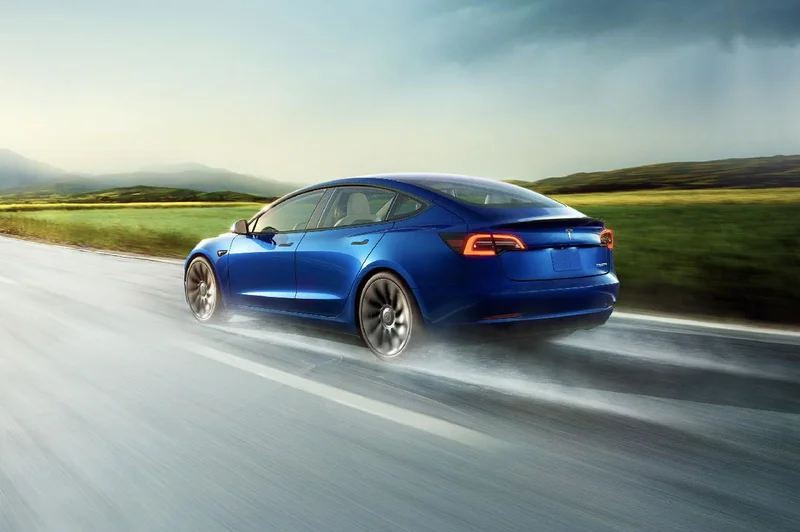Article Directory
The Case of the Missing German Tesla Sales
Tesla, it seems, has hit a speed bump in Germany. Reports are surfacing that sales figures have taken a significant dip compared to last year. While the overall EV market continues its upward trajectory, Tesla's slice of the pie appears to be shrinking, at least in one of Europe's key automotive markets. The question is: why? And more importantly, is this a blip or a trend?
Parsing the Cookie Crumbs
Let's address the elephant in the room, or rather, the cookie in the browser. One of the provided documents is a cookie notice from NBCUniversal. (Yes, I realize the irony of analyzing a cookie notice in an article about Tesla sales.) While seemingly unrelated, it highlights a crucial aspect of modern data collection and user behavior tracking. These cookies gather data regarding your usage of and performance of the Services, apply market research to generate audiences, and measure the delivery and effectiveness of content and advertising. We and our third-party vendors use these Cookies to perform analytics, so we can improve the content and user experience, develop new products and services, and for statistical purposes. They are also used to recognize you and provide further insights across platforms and devices for the above purposes. This level of data granularity is what companies like Tesla rely on to understand consumer preferences and market dynamics.
The Musk Factor
Then there's the looming shadow of Elon Musk's compensation package. The proposed package, which hinges on Tesla reaching an $8.5 trillion market cap, has become a focal point of contention. Some analysts, like Wedbush Securities' Dan Ives, see Musk as the "key asset" for Tesla, essential for navigating the autonomous driving and robotics future. Others, like Ross Gerber of Gerber Kawasaki, view the potential payout – a staggering $275 million per day if the targets are met – as unfair to shareholders. The vote that could make Elon Musk the first trillionaire – or prompt him to leave Tesla
Here's where things get interesting. Musk himself frames the need for this compensation as a means to maintain control and influence, stating he needs "enough voting control to give (me) a strong influence – but not so much that I can’t be fired if I go insane." This isn't just about money; it's about control, vision, and the perceived risk of Musk pursuing "other interests" if the package is denied. The subtext? Tesla needs Musk, and this compensation is the price of keeping him engaged.
Numerous investment funds have already announced they’re voting against the package, including Norges Bank Investment Management, which is Norway’s massive sovereign wealth fund. Some US public pension funds in California, New York, and elsewhere have also come out against the package and urged others to vote no. Some of those have voted no in the past.
Influential advisory firms Glass Lewis and ISS have also recommended that institutional investors vote against the package, arguing that the options that Musk could be granted would dilute shareholders’ stakes.
“The performance targets included in the (Musk’s proposed pay package) are in many cases vague, undemanding, and subject to significant discretion by the board,” said Glass Lewis in a note that recommends voting against the package.

Musk attacked both firms during Tesla’s recent investor call, calling them “corporate terrorists.” He added that their influence over some investor firms that hold shares and vote is the reason he needs a greater stake in the company.
“It’s not like I’m going to go spend the money,” Musk said on the call. “There needs to be enough voting control to give (me) a strong influence – but not so much that I can’t be fired if I go insane.”
Robotaxis and Reality
But let's not get lost in the financial weeds. The core issue, as Tesla executives see it, is a strategic shift. They're moving away from being "merely" an electric vehicle manufacturer and toward selling self-driving cars, including a fleet of "robotaxis," as well as humanoid robots. These are ambitious goals, to say the least. (And this is the part of the report that I find genuinely puzzling...).
The problem? These products are still in development. The promised robotaxis, slated for 2026, remain prototypes. The humanoid robots are still more concept than reality. So, while Tesla paints a picture of a future dominated by autonomous vehicles and robots, the present reality is one of declining sales and unfulfilled promises.
Is it possible that German consumers, known for their engineering prowess and demanding standards, are simply not buying into the hype? Are they waiting for concrete products instead of visionary promises? The numbers seem to suggest that. Growth was about 30%—to be more exact, 28.6%. Tesla sales in Germany have cratered from last year, data shows
The Market is Speaking
The drop in German sales isn't just about numbers; it's a signal. It's a message from a sophisticated market that demands more than just hype. It's a reminder that even the most visionary companies need to deliver tangible results. The cookie data, the compensation debate, and the robotaxi promises all converge on one point: Tesla's future hinges not just on innovation, but on execution.
